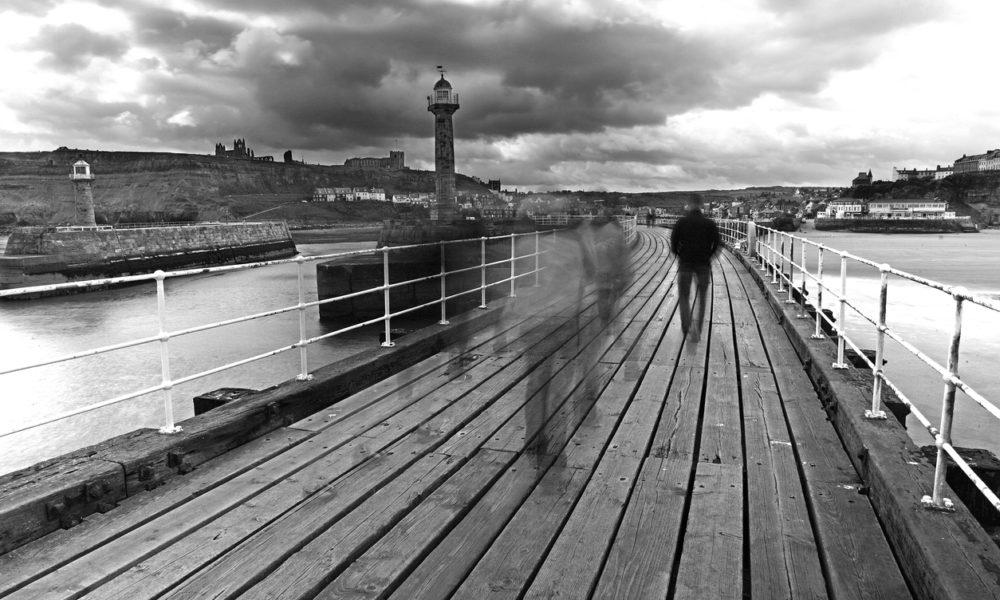Some history on Mariner’s Cottage
Built Pre 1700
First Recorded 1829
For as long as properties were recorded on the west side of the River Esk, there has been a building on this site. The cottage, originally a simple single storey structure, was built facing the Packhorse Paddock. The importance of this area is difficult for us to grasp today. For well over eight hundred years, from the arrival of the Normans at the turn of the first millenium to the construction of the railways in the last two centuries before the second millenium, packhorses were the only efficient means of transporting merchandise overland into and out of Whitby. To this day the moors are interlaced with their stone-paved pannier ways, which are often mistaken for footpaths. They were the long distance road hauliers of the day, as well as the local delivery merchants. It is no accident that ‘The Paddock’ is at the hub of an intricate maze of yards, roads and passageways that radiate out over the west side of Whitby.
From a simple cottage with a central hearth, the building was improved and enlarged as Whitby grew in the eighteenth century. By 1829 a brick chimney had been added on the north gable, while the roof was lifted and an extra floor added. Now used as warehousing as well as living quarters, the building continued to be added to and adapted over the years. They say the door faced the Paddock where the beasts were kept for more than the purpose of keeping a sharp eye on the animals, for not all the money that enabled the owner to improve this simple cottage came from quite legal trade.
One can only wonder at the deals transacted in the low rooms; a shipment of innocent seed grain and under it a smuggled bag of tea from the Orient to be discreetly left at the Saltergate Inn; bales of fine wool cloth for a merchant in York and, hidden deep inside the bale, a dozen yards of costly silk; a dozen barrels of salted herring, one with a false bottom containing a smaller cask of rum; and so the lists went on.
Because the Paddock was in a way the Goods Depot of Georgian Whitby and therefore a busy place of trade and commerce, Mr Hunter established his theatre nearby and Mr Ellery his brewery. Even in the closing years of the nineteenth century, a few donkeys and ponies were used in town to move goods up and down the steep banks and yards. Soon though, the only gainful employment for the beasts was to entertain children by giving rides on the sands and gradually The Paddock sank into quiet obscurity. Today it is difficult to understand that it was once such a vibrant and important hub of Whitby commerce.

